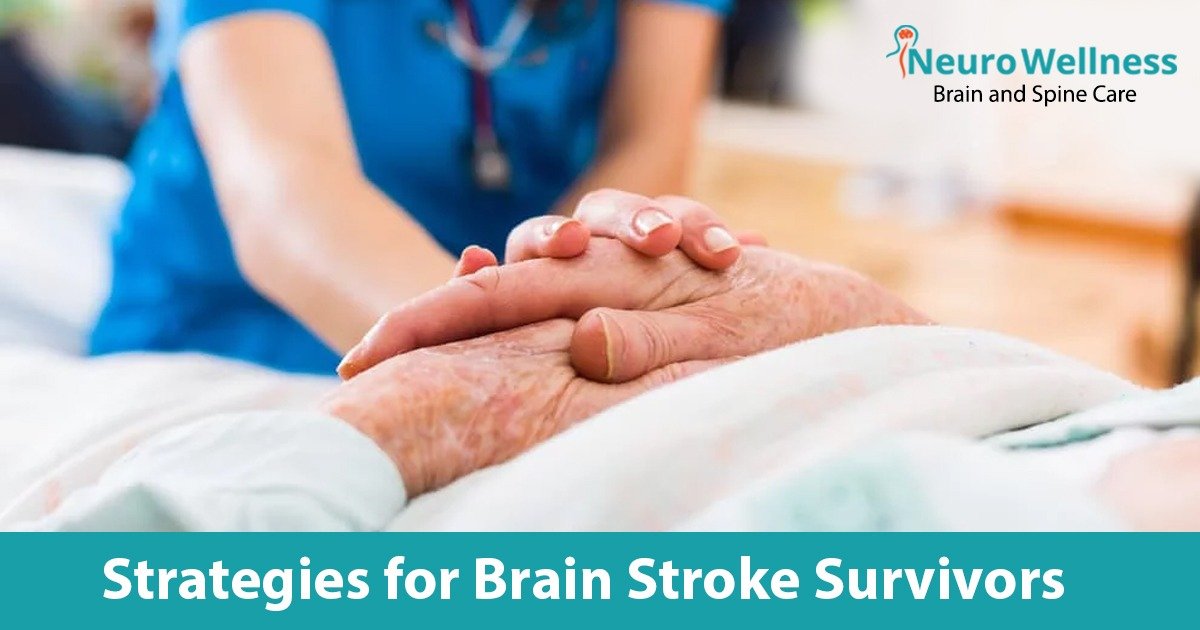Understanding Brain Strokes:
A brain stroke occurs when the blood supply to the brain is interrupted, resulting in the rapid loss of brain function. This disruption can be caused by a blockage (ischemic stroke) or bleeding (hemorrhagic stroke) within the brain. Survivors often encounter physical, cognitive, and emotional challenges that necessitate comprehensive support and rehabilitation.
Strategies for Brain Stroke Survivors:
- Healthy Lifestyle Choices
- Assistive Technologies
- Mindfulness and Stress Reduction
- Medication Management
- Lifestyle Modifications
- Social Engagement
Let’s explore it more in detail;
Rehabilitation Therapy:
Rehabilitation therapy plays a crucial role in the recovery process. Physical therapy focuses on regaining strength, mobility, and coordination, helping survivors improve their physical abilities. Occupational therapy assists in relearning daily living skills and adapting to any physical limitations. Speech therapy can help with communication difficulties and swallowing problems. Working with a skilled team of therapists, survivors can make remarkable progress and regain their independence.
Healthy Lifestyle Choices:
Adopting a healthy lifestyle is key to optimizing recovery. Regular exercise, under the guidance of healthcare professionals, can improve cardiovascular health, strength, and overall well-being. Eating a balanced diet, rich in fruits, vegetables, whole grains, and lean proteins, provides essential nutrients for healing and supports brain health. Adequate rest and quality sleep are also important for recovery and rejuvenation.
Assistive Technologies:
A brain stroke survivor’s quality of life can be greatly enhanced by embracing assistive technologies. Mobility aids, communication tools, and gadgets that may be adjusted to meet different demands are some of these technologies. With the use of assistive technology, survivors can overcome their physical and verbal limitations, fostering independence and improving general wellbeing.
Lifestyle Modifications:
Making necessary modifications to the living environment can create a safer and more accessible space for brain stroke survivors. Simple adjustments such as installing handrails, grab bars, can prevent falls and enhance mobility. Organizing the living space to reduce clutter and improve navigation can also contribute to a sense of security and independence.
Medication Management:
It is essential to follow your prescribed medication regimen diligently. Medications can help manage underlying conditions, prevent future strokes, and control symptoms. Regularly consult with your healthcare provider to ensure you are taking the right medications and understand their potential side effects.
Social engagements:
Maintaining social connections and engaging in meaningful activities is vital for the well-being of brain stroke survivors. Participate in support groups, community programs, and social activities that align with personal interests and abilities. Connecting with others who have shared experiences can provide emotional support, encouragement, and a sense of belonging.
Mindfulness and Stress Reduction:
Practicing mindfulness techniques, such as deep breathing exercises, meditation, and relaxation techniques, can help reduce stress and promote overall well-being. Stress management is crucial, as excessive stress can hinder the recovery process. Consider joining mindfulness programs or engaging in activities that bring you joy and relaxation.
Conclusion:
As you navigate the path to recovery after a brain stroke, Neuro Wellness Brain and Spine Clinic is here to support you every step of the way. By implementing strategies such as rehabilitation therapy, Healthy Lifestyle Choices, Assistive Technologies Lifestyle Modifications, Medication Management, Social engagements, Mindfulness and Stress Reduction, you can unlock your potential for healing and regain independence. Remember, each survivor’s journey is unique, and at Neuro Wellness, we are dedicated to providing personalized care and guidance tailored to your specific needs. Let us embark on this transformative journey together, where hope thrives, and you rediscover the joy of life after a brain stroke.

